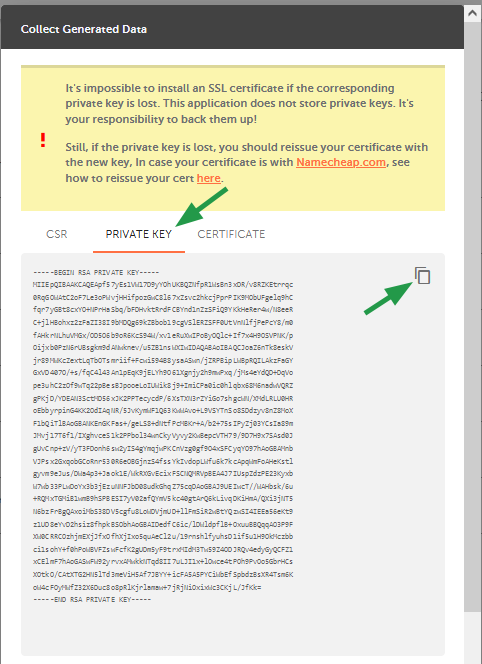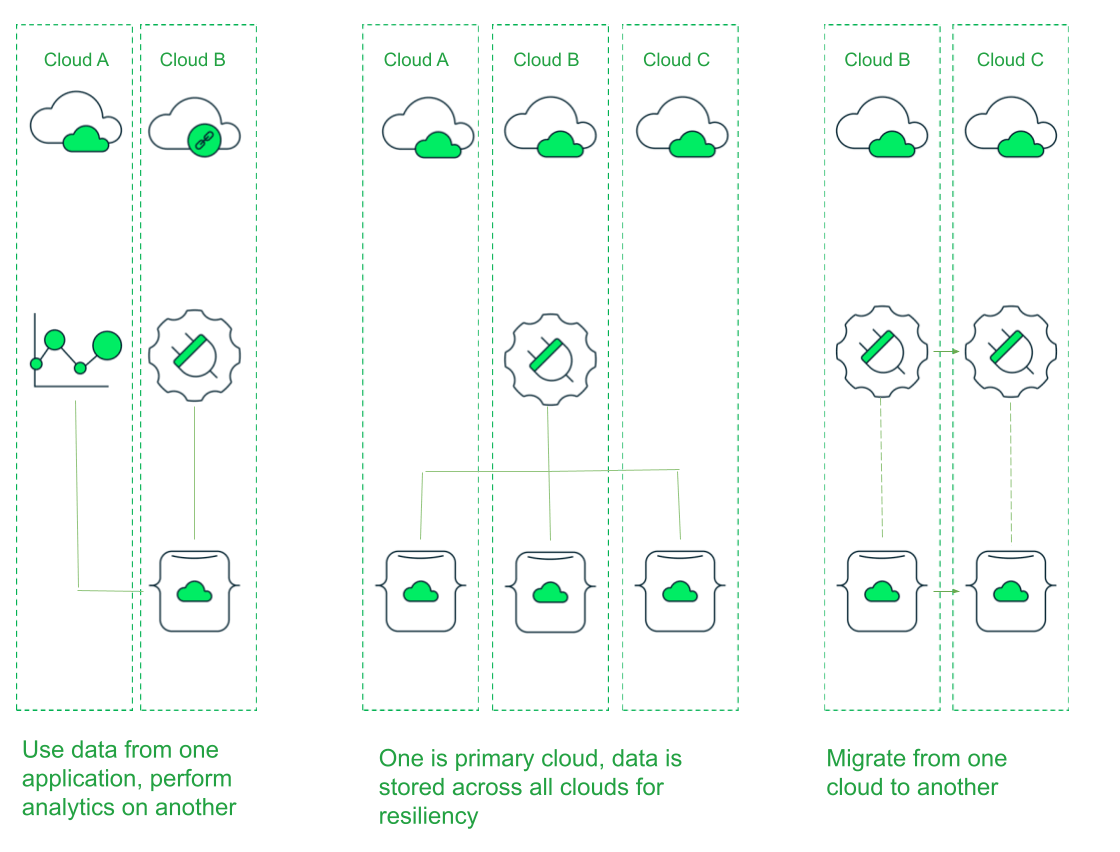
TLS and SSL are two types of encryption protocols. They use different algorithms to encrypt data. Both protocols are valuable, but there are significant differences. Let's take a closer look at some of their main differences.
Authentication
TLS and SSL both use client authentication to restrict access to authenticated users. This authentication is used to prevent attacks by external sources. Although it is widely accepted and used, it does require client certificates to be installed on clients machines and applications. This can be time-consuming for administrators and difficult for users.
The two protocols employ different ciphers to encrypt data. TLS uses more powerful and sophisticated ciphers. TLS also boasts perfect forward secrecy. They also use different methods to transmit warning and error messages. TLS uses encrypted alert messages, which are not read by anyone except the intended recipients.

Encryption
SSL and TLS differ primarily in the way they protect data. SSL uses asymmetric encryption to protect information sent over a network. This type of encryption protects data with a private key and shared secret. These details are exchanged by clients and servers before the first bit of data is transmitted. This makes this type encryption secure and reliable.
TLS1.0 has been exposed to a variety of vulnerabilities. The BEAST exploit exploits a long-standing vulnerability in TLS 1.0 known as cipherblock chaining. An attacker can force a server into using weaker encryption keys of 512-bit.
Certificates
TLS and SSL certificates can seem confusing, especially if it is your first time using internet protocols. TLS certificates offer the same level encryption as SSL, but TLS is a more recent security protocol. To find out which is better for your site and why, continue reading.
SSL and TLS certificates are digital certificates issued by a certificate authority. They are issued to the client with a cryptographic public key. This key is required for a secure connection. The certificate authenticates who the certificate authority is as the owner.

Implementation
SSL and TLs provide internet traffic encryption. These protocols use cryptographic keys which are computed over Protocol messages. They are also used to validate data integrity. To secure the connection, both the client as well as the server use session keys. When both parties agree to share encrypted data, a secure connection is established.
Both SSL and TLS are widely implemented in free and open source software projects. Some common implementations of these protocols are OpenSSL and CyaSSL, which are libraries that are embedded into many popular web browsers. These libraries are also used by many popular software projects to support SSL and TLs. These libraries support SSL/TLS over TCP, which is a reliable datagram oriented transport protocol.
FAQ
How do I choose a domain name?
It is important that you choose a domain name that is memorable. People won't know where to go if they don't have a good domain name.
Domain names should be simple, short, easy-to-remember, relevant to your brand and unique. Ideal domain names are something people would type into their browser.
Here are some tips to help you choose the right domain name.
* Use keywords that are related to your niche.
* Avoid using hyphens (-), numbers and symbols.
* Don't use.net or.org domains.
* Don't use words that have been used before.
* Avoid generic terms like domain or website.
* Make sure it is available.
Should I use WordPress or a website builder?
Start small to create a strong web presence. If you have the time and resources to build a full-blown site, then do so. But if you don't have these resources yet, starting with a simple blog might be the best option. As you learn to develop and design websites, you can always add new features.
However, before you create your first website you need to set up a primary URL. This will give you something to point to when you publish content.
What platform is the best to design a site?
The best platform for designing a website is WordPress. It has all the features required to create a professional-looking website.
Themes are easy-to-install and customizable. You have thousands of options for free themes.
Plugins allow you to add functionality, such as adding social media buttons or creating contact pages.
WordPress is also very user-friendly. To modify your theme files, you don't need to be able to code HTML. You just need to click on the icon and choose what you want to modify.
There are many other platforms available, but I recommend using WordPress because it's been around for years and is still used by millions worldwide.
What types of websites should you make?
The answer to this question depends on your goals. It may be best to sell online your products to build a company around your website. To do this, you will need to create a strong eCommerce website.
Blogs, portfolios and forums are all popular websites. Each type of website requires different skills. To set up a blog for instance, you'll need to learn about blogging platforms like Blogger and WordPress.
Once you have chosen a platform, it is also important to determine how you can customize the appearance of your site. There are many themes and templates that you can use for free.
Once you've selected a platform to build your website, you can start adding content. Images, videos, text, and other media can all be added to your pages.
Your new website is ready to be published online. Once your website is published, visitors will be able to access it in their web browsers.
Can I use a Template or Framework on My Website?
Yes! Yes! Many people use pre-built frameworks or templates when creating websites. These templates contain all the code needed to display information on your page.
Some of the most well-known templates are:
WordPress – One of the most well-known CMSes
Joomla - another popular open source CMS
Drupal - An enterprise-level solution for large companies
Expression Engine - Yahoo's proprietary CMS
Each platform offers hundreds of templates. Finding the right template should be simple.
Statistics
- It's estimated that in 2022, over 2.14 billion people will purchase goods and services online. (wix.com)
- Is your web design optimized for mobile? Over 50% of internet users browse websites using a mobile device. (wix.com)
- When choosing your website color scheme, a general rule is to limit yourself to three shades: one primary color (60% of the mix), one secondary color (30%), and one accent color (10%). (wix.com)
- Did you know videos can boost organic search traffic to your website by 157%? (wix.com)
- Studies show that 77% of satisfied customers will recommend your business or service to a friend after having a positive experience. (wix.com)
External Links
How To
What is website hosting?
Website hosting refers simply to the place that people visit when they visit a website. There are two types:
-
Shared hosting is the cheapest. Your website files will reside on a server belonging to someone else. Your customers' requests travel via the Internet to your server when they visit your site. The owner of the server then hands off the request to you.
-
Dedicated hosting - This is the most expensive option. Your website is hosted entirely on one server. There are no other websites sharing space on the server. Your traffic remains private.
Shared hosting is preferred by most businesses because it's cheaper than dedicated hosting. You can use shared hosting if the company owns the server to provide the resources required for your website.
There are pros and disadvantages to each option. Here are the differences:
Sharing Hosting Pros
-
Lower Cost
-
Easy to Setup
-
Regular Updates
-
It can Be Found On Many Web Hosting Companies
Hosting shared can be as low as $10 per month. This price often includes bandwidth. Bandwidth describes the amount of data that can be transferred over the Internet. Even if you are only uploading photos to your blog site, high data transfer rates can still cost you extra.
You'll soon realize why your old host cost so much once you get started. Most shared hosts don't offer any customer support. Although they will help you set up your site occasionally, you are on your own once you have done that.
Providers that offer 24-hour customer support are worth looking into. They will attend to any issues you have while you sleep.
Hosting dedicated:
-
More Expensive
-
Less is More
-
Requires Special Skills
With dedicated hosting, you get everything you need to run your website. You won't have worry about whether your website is using enough bandwidth, or whether it has enough RAM (random-access memory).
This means that you'll spend a bit more upfront. But once your online business starts, you'll realize you don't need any technical assistance. You'll be able to manage your servers effectively.
Which Is Better For My Business, So Which Is Better?
The answer depends on what kind of website you want to create. If you are selling products, shared hosting may be the best option. It's simple to set it up and keep it updated. It's easy to set up and maintain, as you share a server with other sites. You will likely be updated frequently.
However, dedicated hosting can be a great option if you're looking to build a community around the brand. Instead of worrying about traffic, you can concentrate on building your brand.
Bluehost.com is the best web host for both. They offer unlimited monthly data transfers, 24/7 support, free domain name registration, and a 30-day money-back guarantee.